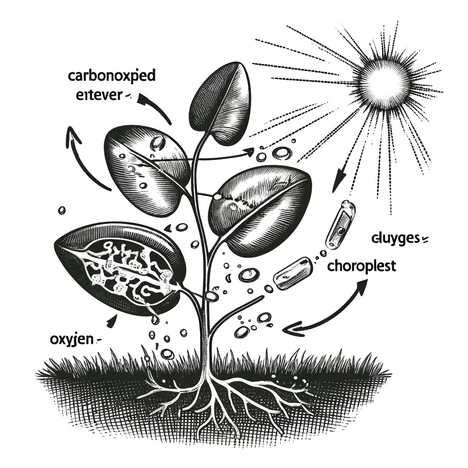Photosynthetic bacteria

In a world where the search for sustainable and healthy food sources is becoming increasingly important not only for humans but also for our pets, photosynthetic bacteria are coming into focus as a possible addition to dog food. These microscopic organisms, which use light energy to convert carbon dioxide into organic substances, could represent a revolution in the way we think about feeding our four-legged friends. But what exactly are photosynthetic bacteria, and what benefits and potential risks do they pose for dogs? This article delves into the green world of photosynthetic bacteria and looks at their role in dog nutrition.
What are photosynthetic bacteria?
Photosynthetic bacteria belong to a group of microorganisms that, like plants, have the ability to photosynthesize. They can absorb light energy and use it to synthesize organic materials from inorganic substances such as carbon dioxide. These bacteria are found in a variety of environments, from oceans and freshwater to extreme locations such as hot springs.
The potential benefits for dogs
Nutritional boost
Photosynthetic bacteria are rich in proteins, vitamins and antioxidants, which could make them a potentially valuable addition to a dog's diet. Their ability to neutralize free radicals and support the immune system could contribute to the overall health and vitality of dogs.
Sustainable food source
With growing concerns about the sustainability of pet food sources, photosynthetic bacteria offer an environmentally friendly alternative. Their cultivation requires fewer resources and less land compared to traditional animal husbandry, making them an attractive option for forward-thinking pet owners.
Digestive support
Some studies suggest that photosynthetic bacteria can improve gut health and help maintain a healthy gut flora. This could be particularly beneficial for dogs with sensitive stomachs or digestive issues.
Possible disadvantages and risks
Insufficient research
Despite the promising benefits, research into the effects of photosynthetic bacteria on dogs is still in its infancy. There is a lack of comprehensive studies investigating the safety, optimal dosage and long-term effects of these bacteria in dog nutrition.
Potential toxicity
Some species of photosynthetic bacteria can produce toxic substances that could be harmful to dogs. Careful selection and control of bacterial strains is therefore essential to minimize risks to the dog's health.
Compatibility and acceptance
Not all dogs like the taste or consistency of supplements containing photosynthetic bacteria. In addition, some dogs may have an intolerance to these bacteria, which can manifest itself in digestive disorders or allergic reactions.
A green future for dog food?
Photosynthetic bacteria offer fascinating potential as a sustainable, nutrient-rich supplement in the diet of dogs. Their benefits, from nutritional boosts to digestive support, make them an interesting research subject for future dog food development. But before they can become part of the daily diet, thorough scientific research is needed to ensure their safety and efficacy.
If you notice any signs of hypersensitivity or poisoning in your dog, you should see your vet immediately. We are not a substitute for a vet, but we try to be as accurate as possible. Every dog reacts differently and we recommend you get a second opinion or consult your vet if in doubt.
Stay healthy and take good care of your four-legged friend!😊